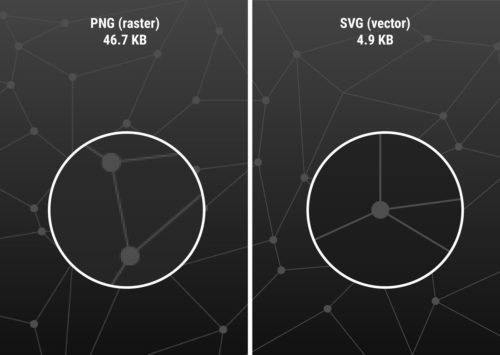
The importance of website page speed cannot be overstated. In today’s fast-paced digital world, users expect websites to load quickly and smoothly. A slow loading website can lead to frustrated users, increased bounce rates, and lower search engine rankings. Research has shown that even a one-second delay in page load time can result in a significant decrease in conversions and user engagement. Therefore, it’s crucial to optimize your website’s page speed to ensure that it loads quickly and efficiently. The good news is that recent advances in web technology have made it much easier to build clean and fast websites. By investing time and effort into optimizing your website’s page speed, you can improve user experience, increase engagement and conversions, and ultimately achieve greater success online.
Minimize and Optimize Code
Writing more efficient code can improve page load speed by reducing the size of files that need to be downloaded by the user’s browser. This might involve minifying your HTML, CSS, and JavaScript files, removing unnecessary white space and comments, and using CSS instead of images wherever possible. One of the key principles of writing efficient code is to keep it simple and concise. Avoid using unnecessary code or scripts that can slow down your website. Make sure to test your code thoroughly to identify any performance bottlenecks or errors, and make the necessary optimizations to ensure that your website is running at its best. By writing efficient code, you can ensure that your website is delivering the best possible user experience to your visitors.
Optimize Images

Images are often one of the biggest contributors to slow page speed. To optimize images, reduce their file size without sacrificing quality. You can do this by compressing images, reducing their dimensions, and using an efficient image file format. Use tools like Photoshop or online image editors to find the right balance of compression and image quality.
WebP is a relatively new image format designed specifically for the web and offers superior compression compared to JPEG and PNG. WebP supports both lossy and lossless compression, as well as transparency, making it a versatile option for web developers looking to optimize page speed without sacrificing image quality. Even better yet, certain types of graphics can be displayed in SVG format. SVG is a vector format (as opposed to raster) with unlimited resolution, razor sharp edges, and extremely small file size.
Minimize HTTP Requests
HTTP requests are made when a browser requests a resource from your server, such as an image or script. Minimizing the number of HTTP requests can significantly improve page speed. You can do this by reducing the number of resources on a page, combining multiple scripts and stylesheets into one file, merging images into a sprite, or using browser caching to store static resources locally.
Use a Content Delivery Network (CDN)
A Content Delivery Network (CDN) is a network of servers that are distributed around the world to deliver content to users more quickly. By using a CDN, your website’s static resources (such as images, scripts, and stylesheets) are cached on multiple servers around the world. This reduces the distance between your server and the user, resulting in faster load times.
High Performance Web Hosting
Your website’s hosting provider can also make a huge impact on page speed. Choose a web host that offers fast and reliable hosting, with servers located close to your target audience. Consider upgrading to a Virtual Private Server (VPS) or a dedicated server if you’re experiencing slow page speed on shared hosting.
Optimizing your website’s page speed is essential for improving user experience, reducing bounce rates, and increasing search engine rankings. Use the strategies outlined above to ensure that your website is lightning fast and worth visiting. Remember that page speed is a critical factor in the success of your website, and investing time and effort in optimizing it will pay off in the long run.




